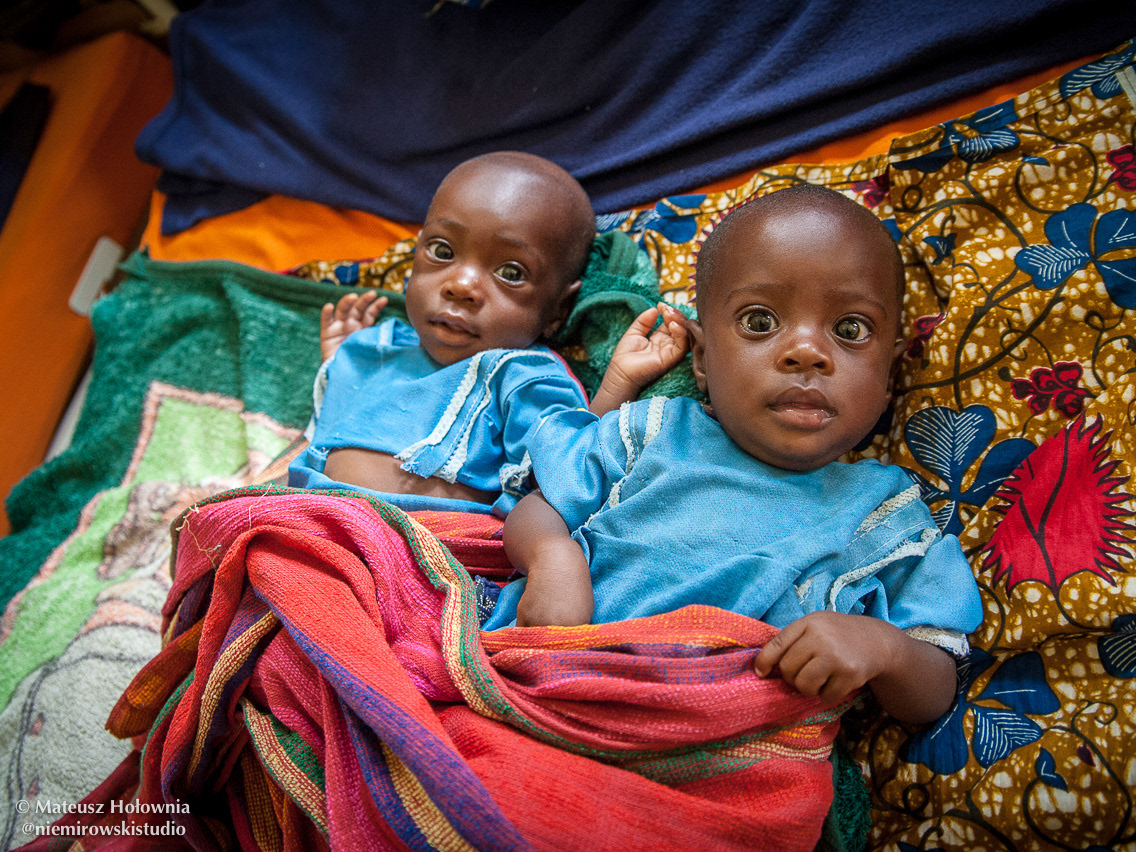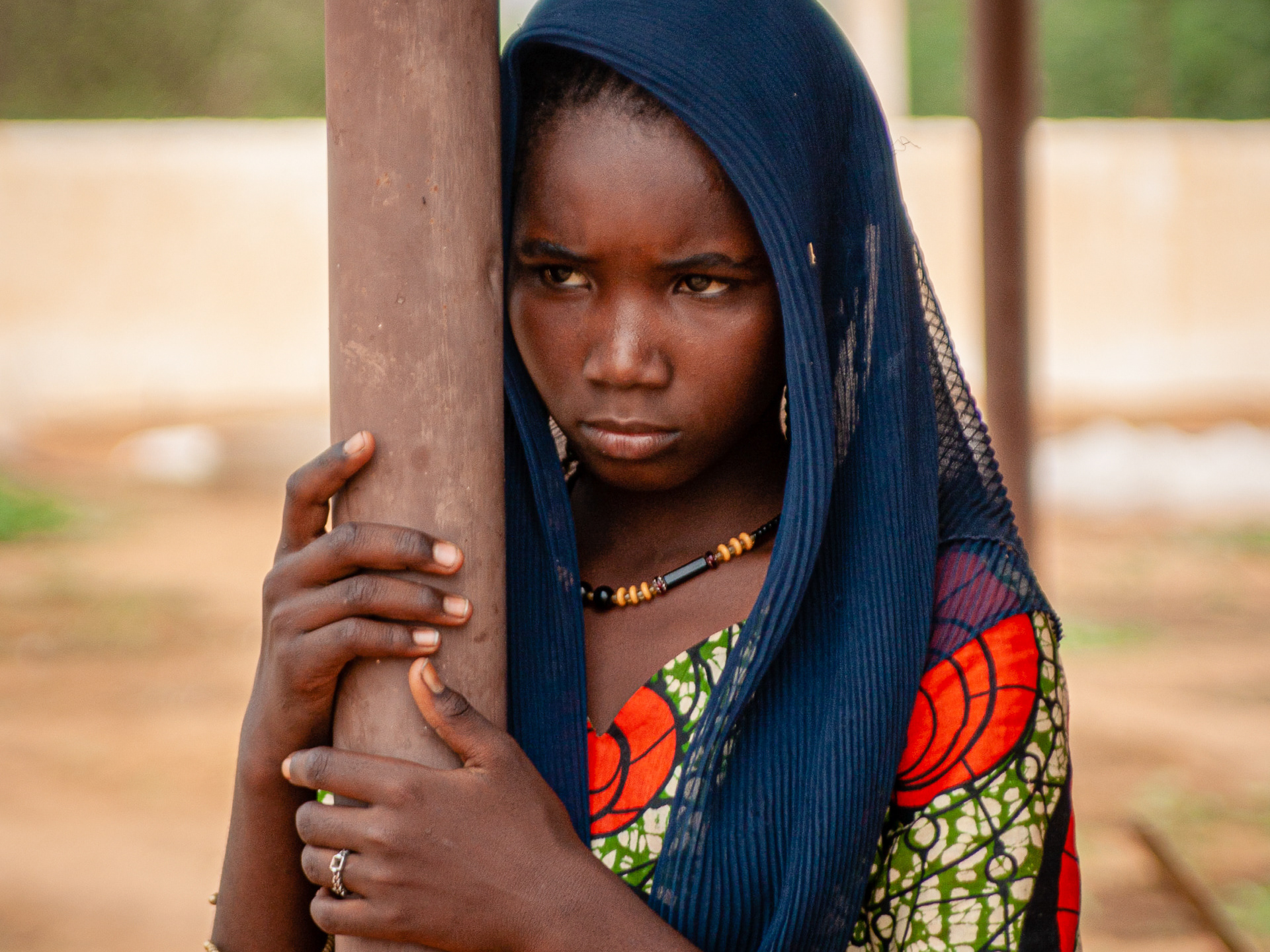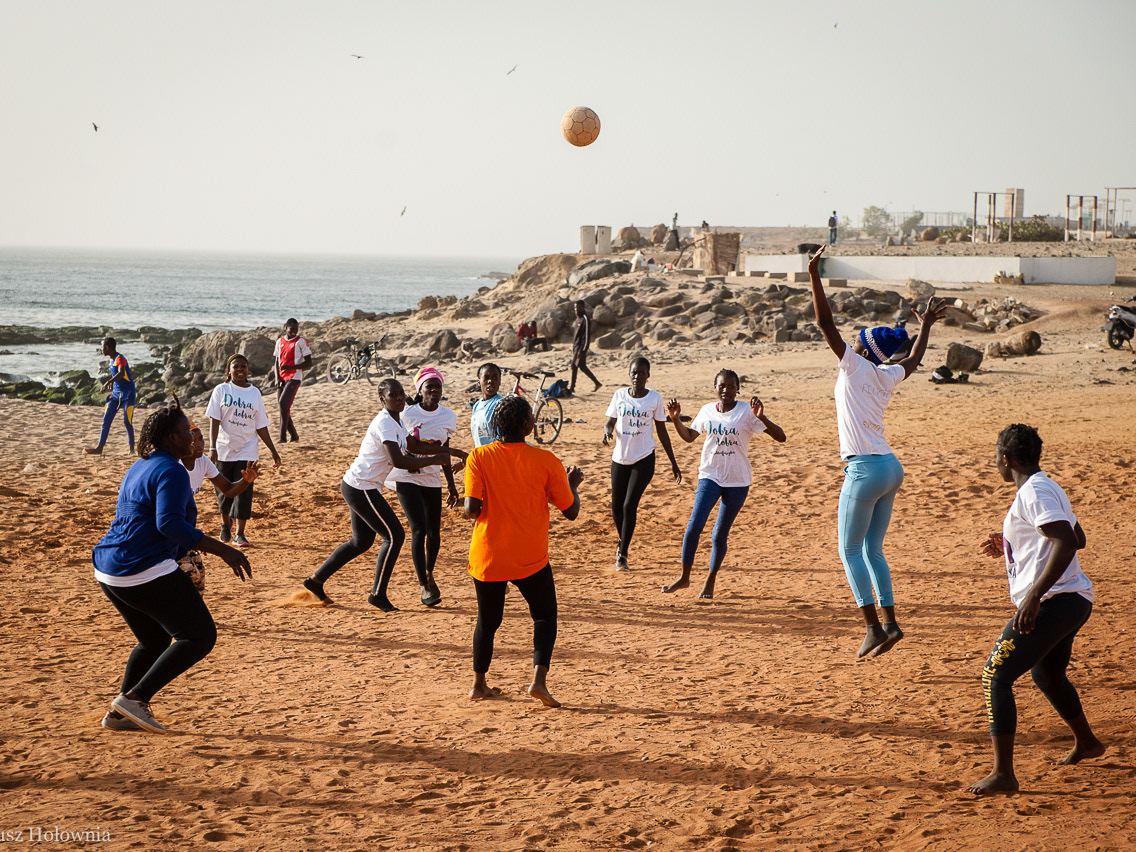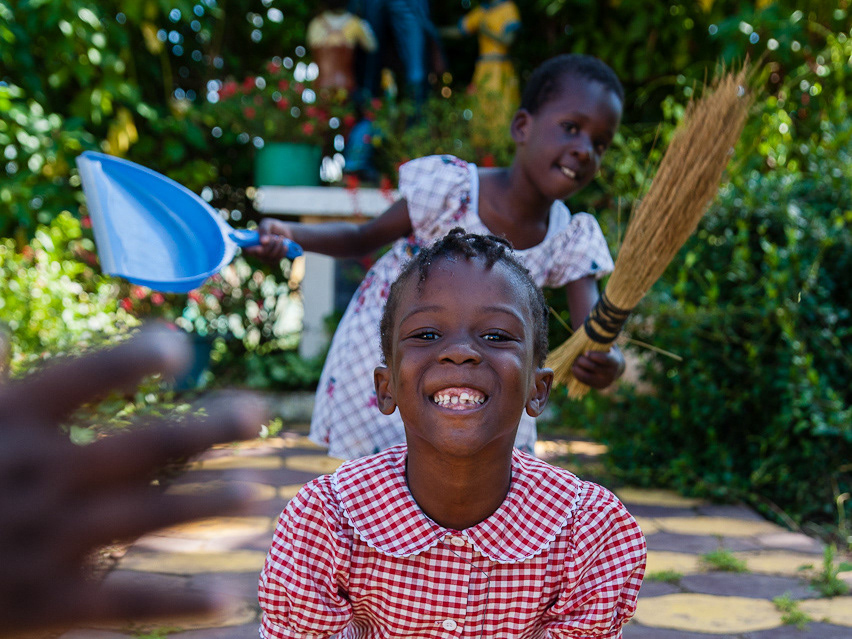Dancilla
Nie miałem okazji poznać Cię lepiej...gdy spotkałem Cię w szpitalu w Kigali to był akurat ten jeden cudowny moment który zdarza się raz na tysiąc razy...wyglądałaś tak jakbyś wyzdrowiała, jakby ciężka nienazwana choroba dręczącą cię od tygodni miała wreszcie ustąpić...zrobiłem wtedy wiele zdjęć, ale czekałem na to jedno...i wreszcie gdy przysiadłem gdzieś u stóp twojego szpitalnego łóżka spojrzałaś na mnie i uśmiechnęłaś się naprawdę...nacisnąłem migawkę…i już wiedziałem, że lepszego zdjęcia nie zrobię...tydzień później umarłaś...dziękuję Ci za ten uśmiech Dancilla...za najpiękniejszy uśmiech jaki widziałem w Rwandzie…zachowam go w pamięci jak klejnot…odpoczywaj w spokoju.
I did not have a chance to get to know you better. When I met you at the hospital in Kigali it was just this one wonderful moment that happens once a thousand times. You looked as if you had recovered, as if the heavy unnamed disease that had been tormenting you for weeks was to finally disappear. I did a lot of pictures then, but I waited for that special one. And finally, when I sat at the foot of your hospital bed, you looked at me and… you really smiled. I pressed the shutter. I knew I could not take a better photo.
A week later you died…
Thank you for this smile Dancilla…for the most beautiful smile I've seen in whole Rwanda. A smile that I will keep in my memory like a real gem ... rest in peace.
Lucie
Patrząc na jej łagodny uśmiech nie uwierzyłbyś ile przeszła. I choć jest ciężko chora nie wygląda na tyle lat ile ma naprawdę.
Lucie doskonale pamięta 1994 rok i „ludobójstwo” w Rwandzie.
Miała wtedy 24 lata. Jak wiele młodych kobiet w jej wieku dopiero miała zacząć, zwykłe, dorosłe życie. Ale wtedy w kwietniu 94 roku wybuchł koszmar. W ciągu 3 tygodni zginęło pół miliona ludzi. Z rąk żołnierzy, bojówkarzy, a nawet swoich sąsiadów. Ten koszmar nie ominął Lucie. Jej rodzice zostali bestialsko zamordowani. Jej udało się przeżyć, choć wiele ją to kosztowało. W 1995 roku urodziła córeczkę. Nie miała środków by kontynuować naukę bo musiała jakoś utrzymać siebie i maleńkie dziecko. Zajęła się drobnym handlem żeby jakoś związać koniec z końcem i starała się jak tylko mogła by jej córce niczego nie brakowało.
W 2008 roku Lucie zachorowała. Stwierdzono u niej nowotwór kręgosłupa. Choroba wciąż postępowała pomimo wielu chemioterapii na które ją skierowano.
Od kilku miesięcy Lucie jest w hospicjum w Kabudze. Przyjmuje już tylko leki przeciwbólowe, rokowania nie są pomyślne. Nie daje już rady chodzić porusza się tylko na wózku. Z delikatnym uśmiechem mówi, że tu w Kabudze wreszcie odnalazła spokój. Czasem przychodzi odwiedzić ją jej córka. Ma teraz 23 lata.
To prawie tyle samo ile miała Lucie wtedy gdy Rwandę ogarnęło szaleństwo...
...
Looking at her gentle smile, you would not believe how much she went through.
Lucie perfectly remembers 1994 and genocide in Rwanda.
She was then 24 years old. Like many young women at her age she was just about to begin, her ordinary, adult life. But then in April 1994 a nightmare broke out. Half a million people were murdered in just three weeks. From the hands of soldiers, militiamen and even their neighbors. This nightmare did not miss Lucie. Her parents were brutally murdered. She managed to survive, though it cost her a lot. In 1995 she gave birth to a daughter. She did not have the resources to continue her studies because she had to somehow support herself and her tiny child. She did a little trade to make ends meet and she tried as much as she could to give her daughter everything she needed.
In 2008, Lucie became ill. She was diagnosed with spinal cancer. The disease still progressed despite the many chemotherapies on which she was directed to.
For several months, Lucie has been in the hospice in Kabuga. She only takes painkillers now, the prognosis is not successful. She cannot walk anymore, she only moves on a wheelchair. She speaks with a gentle smile, that she has finally found peace here in Kabuga. Sometimes her daughter comes to visit her. She is now 23 years old.
She is almost at the same age as Lucie was, when Rwanda was overwhelmed by madness.
Babcia/Granny
Wszyscy w hospicjum w Kabudze mówią na nią po prostu „babcia” . Nikt jej nie podskoczy. Jest tu królową. Nikt też nie wie ile tak naprawdę ma lat 90, 95, 100?… nie ma takich odważnych by spytać, bo za źle zadane pytanie można od babci oberwać.
Nikt też nie wie jak wiele w życiu przeszła, a niełatwym życiorysem mogłaby by obdarzyć co najmniej kilka osób.
Uwielbia tańczyć, żuć tabakę i wprost przepada za lizakami.
Jest samą dobrocią.
200 lat babciu!
P.S. Babcia odeszła do wieczności 30 czerwca 2018 roku
...Odpoczywaj w pokoju...
Everyone in Kabuga’s hospice calls her just „granny”. Nobody ever mess with her. She’s a queen here.
So the rule 1 is:
Do not mess with the queen.
There's nobody here to as her how old she really is…90?, 95?, 100?…and none dares to ask…because if you ask queen a wrong question the only answer you may get is nudge at your back.
So the rule 2 is:
Do not ask the queen stupid questions.
Nobody knows how difficult life she had and her life story could be divided among at least a few people
She likes dancing, sniffing the tabake and loves lollipops.
So the rule 3 is:
Be nice and bring some lolipos.
When she smiles, she’s a pure kindness.
I wish you "Granny" another 100 years !!!
Best wishes!
P.S. Granny passed away on 30th,June.2018...R.I.P




